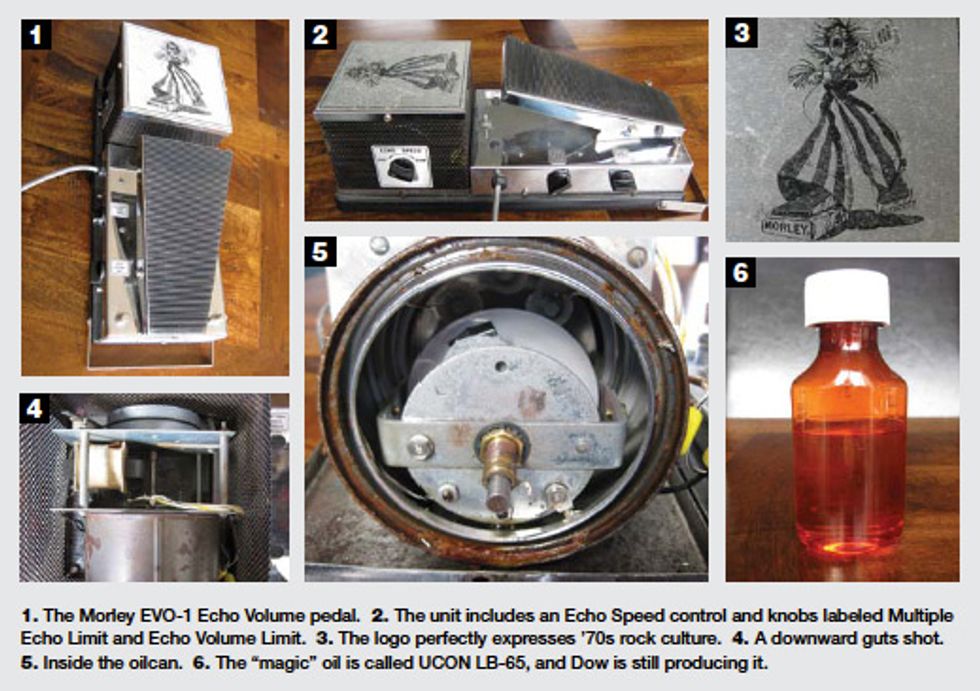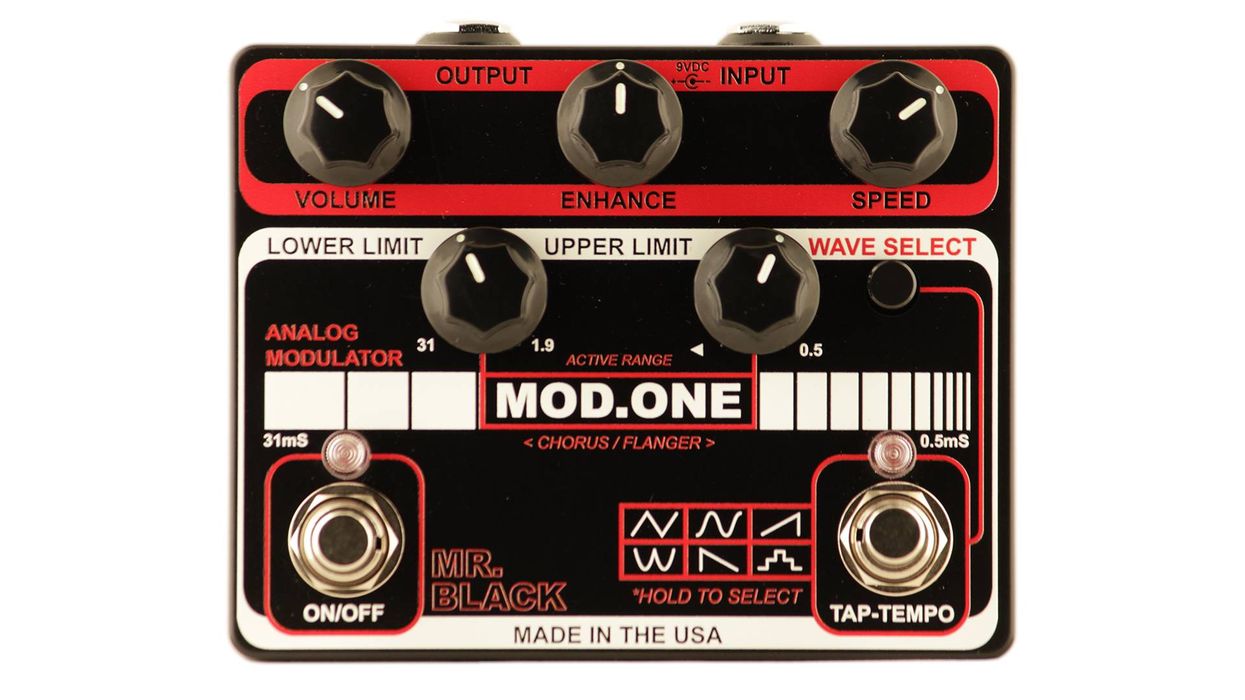Greetings again, stompbox
fans and fanatics. I trust
the intervening months since
my debut column [“Ode toGear,” July 2011] have been
filled with music and delicious-smelling
equipment. This
month, I’m going to tackle
a slightly (only slightly) less
esoteric subject. I want to
talk about a particular pedal
I acquired some years ago.
Actually, to be completely honest,
I acquired two of them.
Wonderful, quirky devices are
these: Meet the Morley EVO-1
Echo Volume.
What, a single pedal that
measures 18" x 7 1/2"? Well,
this is understandable when
you consider this ’70s device
features an AC motor, an oilcan
drum, and a burly Morley
Expression pedal housing. And
this thing sounds fantastic!
Cantankerous and unreliable,
yes, but when the beast works,
oh how the heavens open
and glorious angelic pulses of
delayed sound drip from the
speakers of my tweed Twin. It
really is that special.

For the uninitiated, the EVO-1 was Morley’s contribution to guitar-pedal delay devices. A rather colossal addition, I might add. The “oilcan delay” was invented by a very clever chap named Ray Lubow. Ray and his brother had a company called Tel-Ray, and they supplied their oilcan delay module— which was originally called the “Adineko Memory System”—to other companies, including Fender and Gibson. Eventually Ray and his brother started producing their own standalone units under the name Morley.
At the heart of the EVO-1 lies the oilcan unit. This is a drum containing a spinning, anodized metallic disc with rubber “read” and “write” heads pushed against its side. And there’s a little magic oil in the bottom—just enough to coat the metal disc and keep the oxygen out. The oil and anodized disc work as a dielectric (which means it can store a charge or signal). So, as the disc spins around past the write head, a thin layer of oil coats the disc and the signal is stored electrostatically. When the disc passes by the read head, the slightly delayed signal is relayed to the circuitry and sent to the EVO-1’s output.
The beauty of this oilcan technology is actually a result of its failure to work as a straightforward delay unit. Rather than providing crisp, accurate repeats, the oil can offers up watery, warbly, vibrato sounds that are unpredictable and oh-so gorgeous. The fact that the medium carrying the audio information is constantly fighting gravity and doing its very best to drip off the metallic disc is only the start of the hijinks. The AC mains-powered motor is notoriously inconsistent. This, coupled with a rubber drive belt and pulley arrangement, yields significant wow-and-flutter. It’s a design truly worthy of Heath Robinson.
In today‘s gear environment, where we’re blessed with more and more builders producing their own pedals and equipment, I think it’s good to step back and look at something that truly is a work of genius—in concept, if nothing else. Really, the idea that you could use a spinning disc with a carrier oil to create a delay sound? Forget about changing a few values here and there to an existing design, the oilcan delay is invention on a grand scale. If you have a technical inclination, you can study exactly what’s happening in the oilcan, as the patents can be found online (look for US Patents 2892898 and 3072543).
I take my hat off to Ray Lubow—he is a complete inspiration to anyone who has endeavored to think outside the box. Ray passed away in 2002 at age 82, having forever changed the face of ’70s guitar effects with his giant chrome boxes. “If it ain’t chrome, it ain’t got the tone” was their catch cry. I think as creators—whether you’re making music, pedals, or anything—it’s incredibly important to keep people like Ray Lubow and his oilcan delay well in mind. When everything feels like it has been done and there’s nothing new to add to the mix, think of Ray and be inspired!
If you want to learn more about the EVO-1 and this unique technology, get involved with the small but passionate community of enthusiasts posting information in various forums online. As a first port of call, I’d recommend checking out Tel-Ray Oilcan Addicts at telrayoilcanaddicts.yuku.com. And to hear the fantastic-sounding Morley EVO-1 in action, watch the demo below:
 Ben Fulton designs Red Witch analog pedals, which are heard in arenas, studios, and bedrooms around the world. Andy Summers and Reeves Gabrels are pleased he ended up doing this instead of going to prison. His mum is relieved about this, too.
Ben Fulton designs Red Witch analog pedals, which are heard in arenas, studios, and bedrooms around the world. Andy Summers and Reeves Gabrels are pleased he ended up doing this instead of going to prison. His mum is relieved about this, too.










![Rig Rundown: Russian Circles’ Mike Sullivan [2025]](https://www.premierguitar.com/media-library/youtube.jpg?id=62303631&width=1245&height=700&quality=70&coordinates=0%2C0%2C0%2C0)







